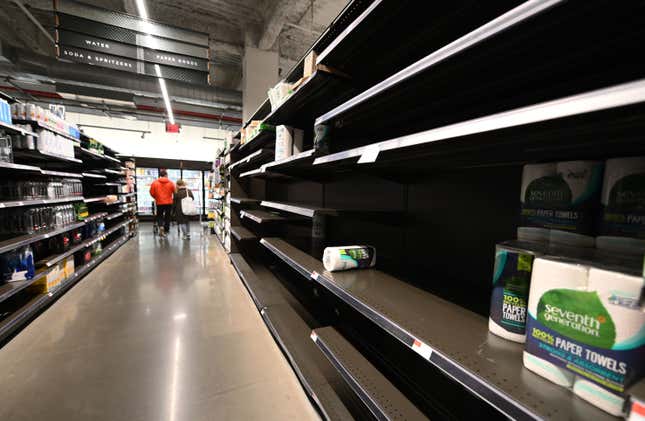
When I was a little girl growing up in Jamaica, my schoolteachers frequently recited the phrase: “No man is an island, no man stands alone.” The saying effectively transmitted to me and my peers’ childhood minds the message that we’re all in this together and that as humans, we need each other to survive, even though we resided in a country that was literally an island in the middle of the Caribbean Sea.
Seven years as an adult living in the United States has given me another kind of education, namely that this philosophy is not as widespread as my cultural upbringing may have led me to believe. In my time here, I’ve worked as a communications specialist for nonprofit organizations helping engender support for policies that benefit individual people and communities at large, like paid sick time for the millions of workers preparing and serving food in restaurants across the country without the most basic of job protections. But despite the best efforts of dedicated Americans advocating for policies that advance the common good, a massive roadblock in engaging the wider public on these issues has remained. Focus group upon focus group and survey upon survey reveal that a major challenge to getting Americans to care about each other is the deeply ingrained belief that they have no obligation to.
Enter coronavirus, a disease which has brought into stark relief the deadly consequences of this societal sickness.
When news hit that a deathly and highly contagious virus had crossed the U.S. border, one upstanding citizen drove 300-miles across Tennessee and into Kentucky to buy all the antibacterial wipes and hand sanitizer he could find in order to hoard and upsell them at horrendous prices to his fellow Americans. Stores are all out of toilet paper. Last week, I watched as a guy and his girlfriend bought close to 30 pounds of raw pasta. The shelves in my neighborhood Trader Joe’s were already empty of perishables by midday Saturday—things like milk, eggs, meat, bread—because people have reacted to the coronavirus crisis and its attendant panic by hunkering down and reverting to their most base instincts. That so many in America grew up admiring the recitation that “greed is good” and holding individualism as the highest of virtues is what may end up killing us all.
What’s been brought to the fore by COVID-19 is a disease that’s actually been killing people in this country for centuries. From rural white folks who consistently vote against policies that would literally save their lives because they resent any benefits that people of color may also receive, to the millions of American children who have been sacrificed to guarantee the loudest among us freedom from gun control, even when it’s painfully obvious that we all do better when we all do better, the average American brain is still trained to say, “Fuck you, I got mine.”
Culturally and fundamentally, Americans don’t seem to think of themselves as a collective—except when it comes to being in competition with or waging war on foreign countries and their citizens. Just look to the elected leaders who have exhibited acute signs of America’s sickness of selfishness in the past few days.
In the pivot to being forced to accept that coronavirus poses a real threat to the life and well-being of people in this country, many have turned to that other favorite American past-time: racism. Republicans are trying their hardest to make transparent dog-whistle names for COVID-19 like “Chinese virus” and “Kung-Flu” happen, and in the most recent Democratic presidential debate candidates were asked what their plans are for making China “face consequences for this global crisis.”
Now look, I get it. In its response to this virus initially, the Chinese government reportedly ignored the indications and alarms raised by scientists, lied to the public, and certainly didn’t behave as if it had any obligation to the health of the global community. Sound like another government you know? Meanwhile, President Trump has reportedly been trying to negotiate access to a coronavirus vaccine on the basis that it be exclusively provided to the United States. It is the syndrome of a deep disease to see the spread of a globally transmitted virus and think that only Americans should get to be healthy—or to respond to the domestic threat this virus poses by stocking up on even more guns and ammunition.
In a match-off between humans and a killer none of us can see, the deadliest diagnosis is still seeing each other primarily as adversaries. So even as the world’s best and brightest continue to hunt for a cure to coronavirus, it’ll be up to all of us in this country to determine how we live—if we are to live—moving forward.

